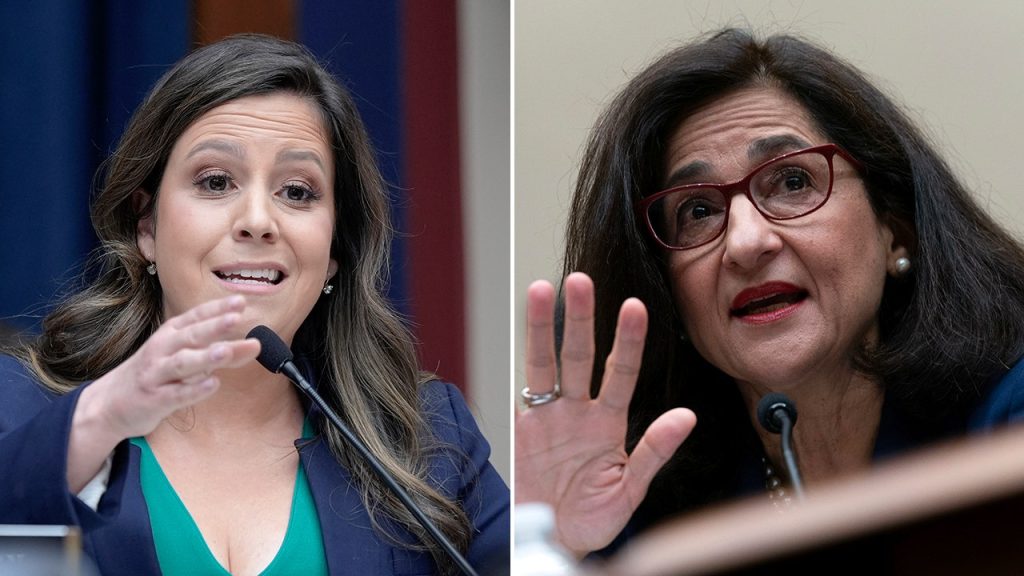During a House Education and the Workforce Committee hearing, Rep. Elise Stefanik accused Columbia University President Dr. Nemat “Minouche” Shafik of attempting to cover up for a pro-terrorist professor who had celebrated the Oct. 7 attacks. Stefanik warned that misleading Congress is a felony and called out Shafik for failing to take action against the professor despite her commitment to do so. Shafik’s false testimony and refusal to address rampant antisemitism on campus were deemed an affront to the Jewish students and faculty at Columbia. House Republicans grilled Shafik over the employment of the professor, demanding to know what disciplinary actions, if any, Professor Joseph Massad faced for his controversial comments.
In response to Rep. Tim Walberg’s assertions that Massad’s article praised Hamas for killing nearly 1,200 Jews, Shafik testified that the professor had been spoken to by the heads of his department and his dean. However, Massad contradicted this statement in a CNN interview, claiming that he had received support from his colleagues due to death threats and was unaware of any investigation against him. Shafik later recanted her statement about Massad no longer holding a leadership role and acknowledged that he was under investigation for alleged discrimination. Despite this, Massad revealed to CNN that he planned to remain a member of the committee for the next three years, and his term as chair was ending due to term limits, not disciplinary action.
Stefanik challenged Shafik on the discrepancy regarding Massad’s role as chair and insisted on confirmation about his status. Shafik pledged to check the facts and consider removing him as chair, although Massad told CNN that he intended to stay on the committee despite the investigation. The lack of immediate action by Columbia University in response to the controversy surrounding Massad’s comments and leadership role raised concerns among House Republicans who accused Shafik of failing to address antisemitism on campus. The ongoing debate highlighted the complexities of dealing with controversial professors and the challenges faced by universities in balancing academic freedom with accountability for hate speech.
The House Education and the Workforce Committee hearing shed light on the tensions between academic freedom and accountability in addressing hate speech on college campuses. Stefanik’s accusations against Shafik for trying to cover up for a pro-terrorist professor and failing to take appropriate disciplinary action sparked a debate over the responsibility of universities to address antisemitism and extremism. Shafik’s testimony, inconsistencies, and reluctance to remove Massad from his chairmanship despite the investigation underscored the challenges faced by educational institutions in managing controversies involving faculty members. The continued scrutiny by House Republicans and the media highlighted the importance of clear policies and communication in addressing sensitive issues related to free speech, discrimination, and academic integrity.
The controversy surrounding Columbia University’s handling of Professor Massad’s comments and leadership role has raised broader questions about freedom of speech, academic responsibility, and combating hate speech on college campuses. The tensions between protecting academic freedom and ensuring a safe and inclusive campus environment have been brought to the forefront through this debate. The lack of immediate action by the university in response to the allegations against Massad and the inconsistencies in Shafik’s testimony have sparked concerns about accountability and transparency in addressing hate speech and discrimination within the academic community. Moving forward, the case serves as a reminder of the complexities involved in balancing academic freedom with the need to uphold values of respect, diversity, and inclusion in higher education institutions.


